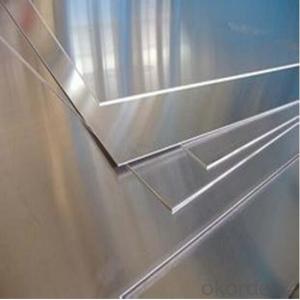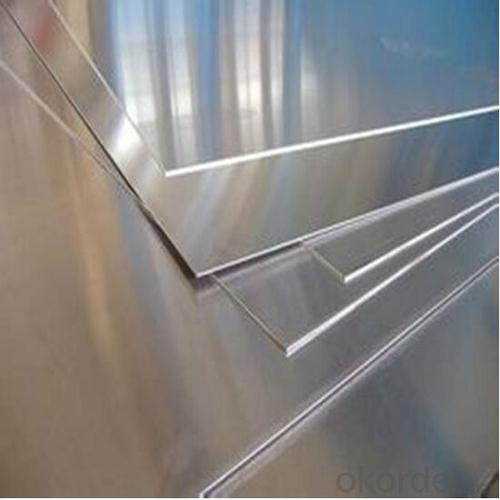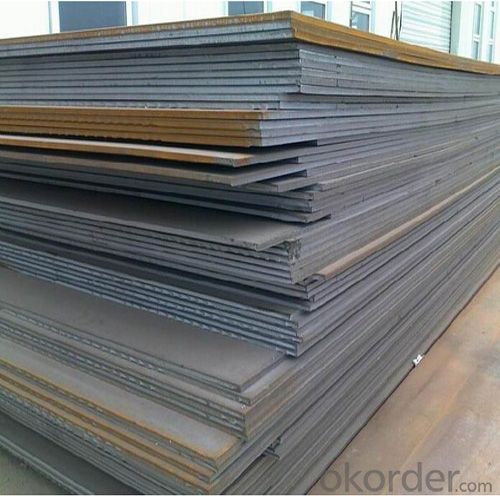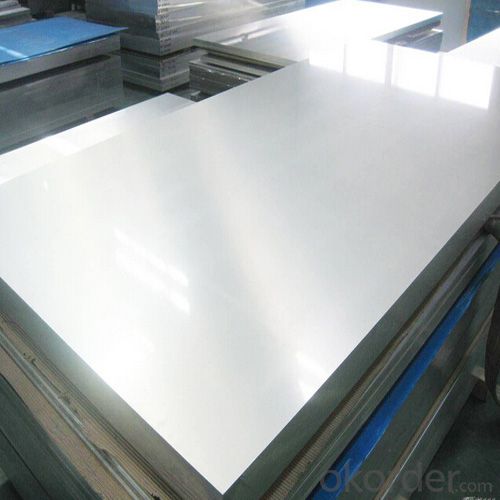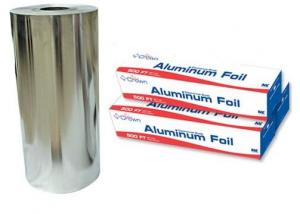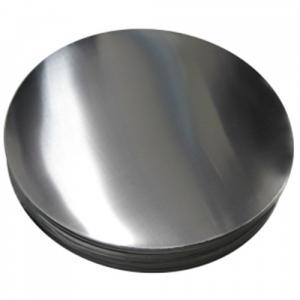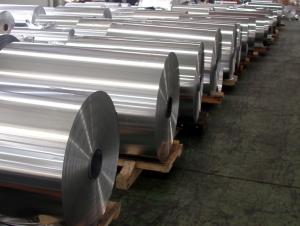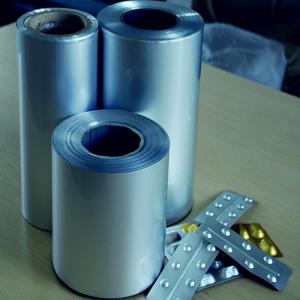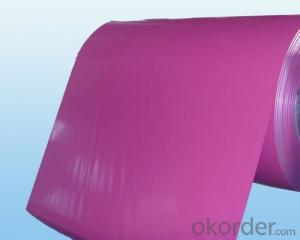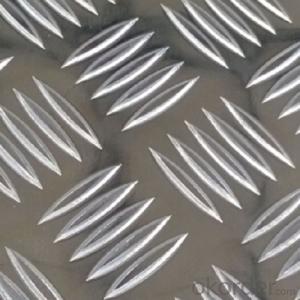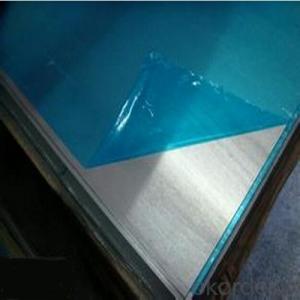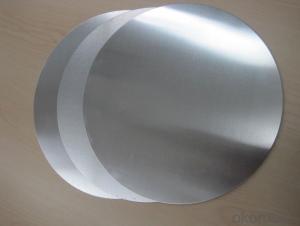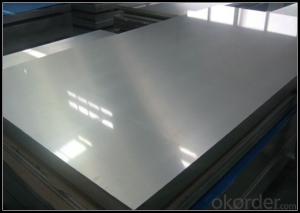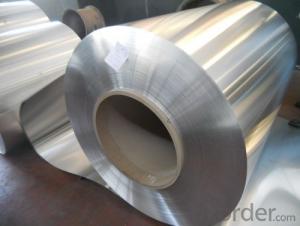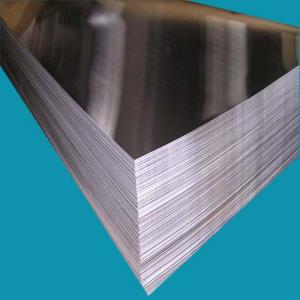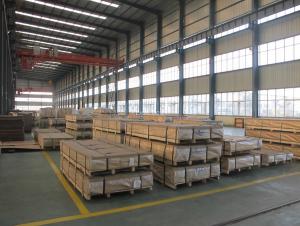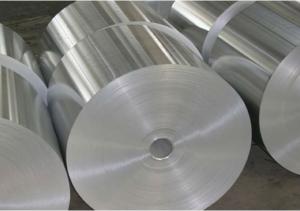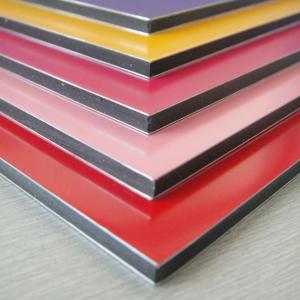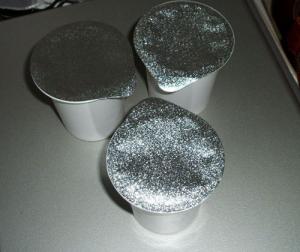Aluminum 6061 Alloy 9mm Thick Sheet - Best Price
- Loading Port:
- Shanghai
- Payment Terms:
- TT OR LC
- Min Order Qty:
- 5 m.t
- Supply Capability:
- 10000 m.t/month
OKorder Service Pledge
OKorder Financial Service
You Might Also Like
Specification
1.Structure of Aluminum Sheet 9mm Thick Alloy 6061 Description:
Construction material with good ductility, polishing ability and corrosion resistance, good electrolytic oxidation, suitable for welding. Have good plasticity qualities in an annealed state suitable when hardened. Very good corrosion resistance, this material is not inclined to stress corrosion cracking. Cutting tool workability in an annealed state is not suitable but is acceptable in a hardened temper. Used for medium strength components with long operation schedules in temperatures from 50°C up to 70°C, applications requiring specific technological properties, corrosion resistance, aesthetic features, when in contact with food, high specification aviation and automotive components. Typical product applications include: airplane cabins, helicopter cockpits, floor coverings, door frames, safety barriers, escalators, furniture, rivet stems, cranes and columns.
2.Main Features of Aluminum Sheet 9mm Thick Alloy 6061 For Marine:
Good Ductility
Polishing Ability and Corrosion Resistance
High Quality
Competitive Price
3. Aluminum Sheet 9mm Thick Alloy 6061 Images:
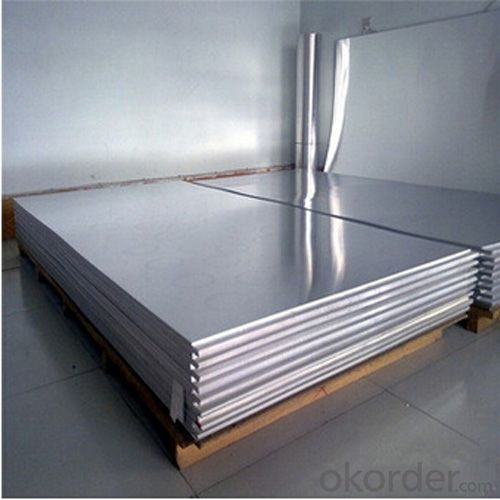
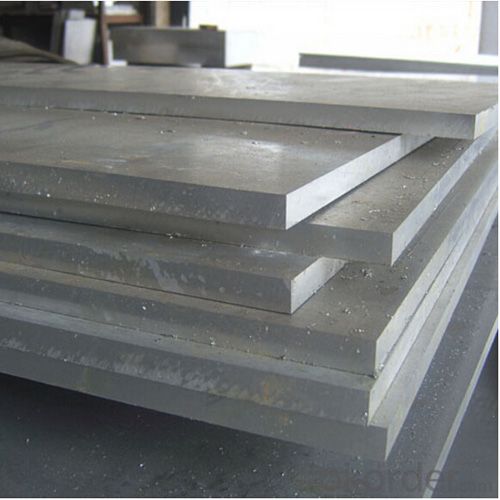
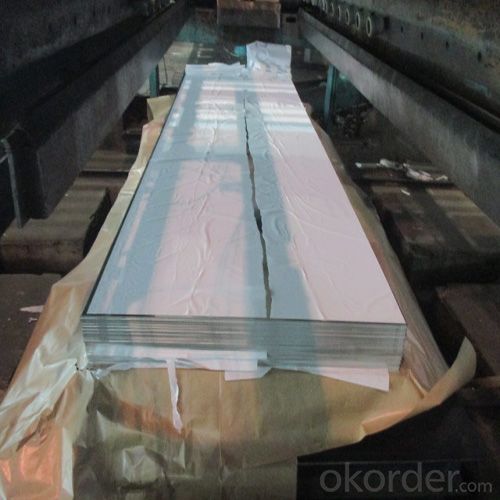
4. Aluminum Sheet 9mm Thick Alloy 6061 Specification:
Standard | GB/T3190-2008, GB/T3880-2006, ASTM B209, JIS H4000-2006 .etc |
Thickness | 2-12mm aluminium 5050 H38 |
Width | 1250mm 1000mm or as your requirements |
Length | 3000mm 5800mm or as your requirements |
MOQ | 5 Ton |
Package | Standard export package, by wooden box or as require |
5.FAQ
Q1.How long have you been in this product?
A1:More than 10 years.
Q2. What's the minium quantity(MOQ)?
A2. 5 Metric tons
Q3. How long is shipping time?
A3. 7 (ready-made products)-25 days(OEM)
Q4. How do you guarantee the quality?
A4. 1. Cooperating and Exchaning experience with sevral quoted aluminum companies
2. Japanese and Swiss production line and skilled works (regular training and testing)
3. more than 10 years production experience.
Q5. Do you have after sale service?
A5. Yes. Any quality problem occurs within one year, pls take photoes,we will be responsible.
- Q: Is it possible to utilize aluminum as a component in battery technology?
- <p>Yes, aluminum can be used in batteries. Aluminum-air batteries are a type of metal-air battery that uses aluminum as the anode. These batteries have a high energy density and are lightweight, making them suitable for certain applications. However, they also have challenges such as the need for a specific electrolyte and issues with aluminum corrosion, which limit their practical use compared to more common battery technologies like lithium-ion batteries.</p>
- Q: Is it possible to repurpose or reuse old aluminum foil for various uses?
- <p>Yes, old aluminum foil can be repurposed for various uses. It can be recycled, used as a makeshift scrubber for cleaning, or as a reflector for grilling. You can also use it to cover food for storage or as a barrier in gardening to deter pests. However, it's important not to reuse foil that has held acidic or sugary foods, as it can corrode and release aluminum into the food. Always ensure the foil is clean and in good condition before repurposing.</p>
- Q: What are some ways aluminum can be used for decoration purposes?
- <p>Aluminum is a versatile material with various decorative uses. It can be used in home furnishings, such as aluminum-framed furniture, mirrors, and lighting fixtures. In architecture, aluminum is utilized for window frames, doors, and decorative facades. Outdoors, aluminum is popular for garden furniture, sculptures, and railings. Its lightweight and corrosion-resistant properties make it ideal for decorative applications in both indoor and outdoor settings. Additionally, aluminum's malleability allows for intricate designs and shapes, making it a popular choice for decorative accents and ornaments.</p>
- Q: Is it possible to join aluminum pieces together using welding techniques?
- <p>Yes, aluminum can be welded. Welding aluminum is a common practice in various industries due to its lightweight and corrosion-resistant properties. Techniques such as Gas Metal Arc Welding (GMAW), Gas Tungsten Arc Welding (GTAW), and Shielded Metal Arc Welding (SMAW) are used. However, aluminum welding requires specific precautions, such as using a clean, dry surface and a proper shielding gas to prevent oxidation, as aluminum readily reacts with oxygen.</p>
- Q: What is the primary application of aluminum in various industries and everyday life?
- <p>Aluminum is most commonly used in the manufacturing of cans and packaging materials due to its lightweight, corrosion resistance, and recyclability. It is also extensively used in construction for window frames, roofing, and facades. In transportation, aluminum is a key material in the production of vehicles, particularly in the aerospace industry for aircraft and automotive industry for car bodies, due to its strength-to-weight ratio. Additionally, it is used in electrical components and electronics due to its good conductivity and malleability.</p>
- Q: This question asks about the consequences of corrosion on aluminum, including how it affects the material's properties and performance.
- <p>Corrosion on aluminum can lead to a loss of structural integrity, reduced strength, and increased brittleness. It can cause pitting, which is localized corrosion that leads to the formation of small holes or cavities on the surface. Over time, this can lead to material failure. Corrosion can also alter the appearance of aluminum, causing discoloration and a rough texture. In extreme cases, it can lead to the complete degradation of the aluminum, resulting in the loss of the material's functionality. Proper maintenance, such as applying protective coatings or using corrosion-resistant aluminum alloys, can mitigate these effects.</p>
- Q: Is it possible to utilize aluminum as a material in battery construction?
- <p>Yes, aluminum can be used in batteries. It is commonly used as a current collector in lithium-ion batteries due to its low density, high conductivity, and corrosion resistance. Aluminum's role is primarily structural, providing support and facilitating the flow of electricity. However, it is not used as an active material in the electrochemical reactions that generate power. Research is ongoing to explore the potential of aluminum as an anode material in next-generation batteries, aiming to improve energy density and reduce costs.</p>
- Q: Is it possible to utilize aluminum in car manufacturing to enhance fuel efficiency?
- <p>Yes, using aluminum in car manufacturing can contribute to increased fuel efficiency. Aluminum is lighter than traditional steel, which can reduce the overall weight of a vehicle. A lighter car requires less energy to move, which can lead to better fuel economy. Additionally, aluminum has good strength-to-weight ratio, allowing for a strong yet lighter structure. However, it's important to note that while aluminum can enhance fuel efficiency, it also has higher manufacturing costs and may not be as recyclable as steel.</p>
- Q: What are the negative aspects or drawbacks of using aluminum?
- <p>Aluminum has several disadvantages. It is a non-magnetic material, which limits its use in applications requiring magnetic properties. Aluminum is also less dense than many other metals, making it less suitable for heavy-duty applications. It can be toxic in certain forms, such as aluminum salts, and has been linked to health issues when ingested in large amounts. Additionally, aluminum's low melting point can be a disadvantage in high-temperature environments. Lastly, the production process of aluminum is energy-intensive and can contribute to environmental pollution.</p>
- Q: This question asks about the impact of heat on the characteristics of aluminum, including its physical and chemical properties.
- <p>Heat significantly affects the properties of aluminum. As temperature increases, aluminum's electrical and thermal conductivity decrease, although it remains a good conductor. Its strength and hardness also decrease with rising temperature, which can lead to reduced structural integrity in high-temperature applications. Thermal expansion occurs, causing the metal to lengthen and potentially deform. Aluminum's malleability and ductility increase with heat, making it easier to shape and form. However, prolonged exposure to high temperatures can cause oxidation and corrosion. The specific heat treatment, such as annealing or quenching, can also alter aluminum's microstructure, impacting its mechanical properties.</p>
Send your message to us
Aluminum 6061 Alloy 9mm Thick Sheet - Best Price
- Loading Port:
- Shanghai
- Payment Terms:
- TT OR LC
- Min Order Qty:
- 5 m.t
- Supply Capability:
- 10000 m.t/month
OKorder Service Pledge
OKorder Financial Service
Similar products
Hot products
Hot Searches
Related keywords
